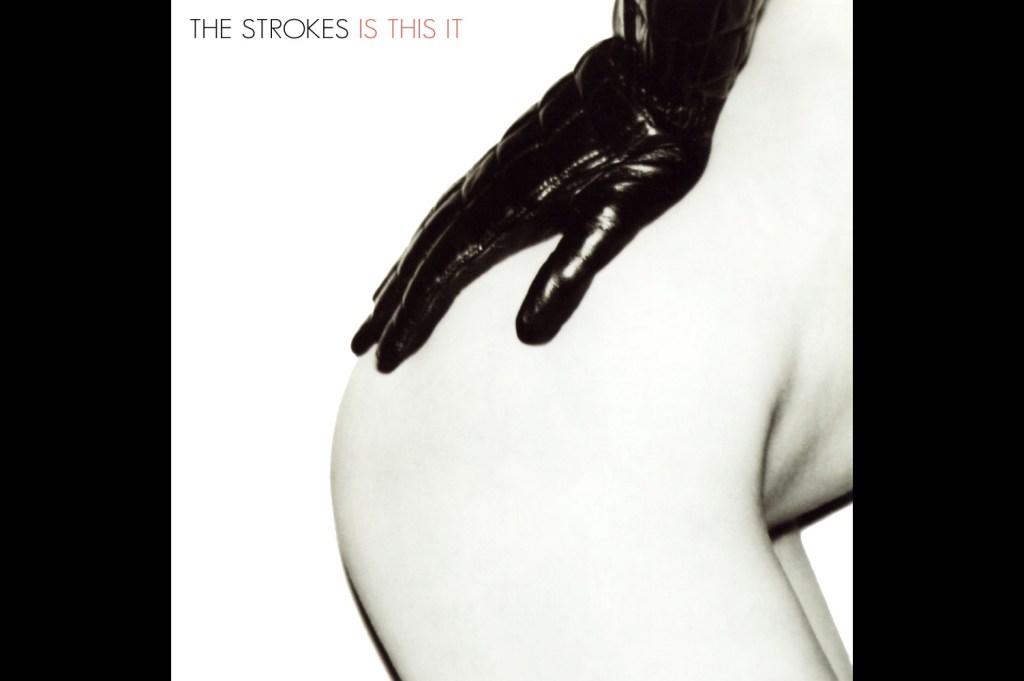What would a rock band have to do now to be seen as heralding the future? Twenty years ago, it was enough to be in possession of sharp cheekbones, tight jeans and 11 fantastic songs.
The first album by the Strokes, Is This It, was released 20 years ago this month. It spread around the world in a way that would be impossible now. Only Australia got the album in July 2001. The UK release was not for another month, to tie in with the Reading and Leeds festivals. The US vinyl version was released on September 11, but the CD edition was held back, so they could remove the song ‘New York City Cops’, whose refrain of ‘they ain’t too smart’ didn’t itself seem too smart in the wake of 9/11.
If the manner of release now seems alien, so does the way Is This It was received. ‘Is this really it?’ wondered NME. ‘Oh, it is. If “it” is 11 songs and 37 minutes of concise and elegant rock music by five young men. If “it” is a truly great statement of intent, one of the all-too-infrequent calls to arms that guitar music can provide, one of the best and most characterful debut albums of the last 20 years.’ Even a decade later, in a 10th anniversary piece, Slate was calling it ‘a decade-defining record that set the agenda for how rock sounded and even looked throughout the aughts… nothing less than an 11-song fireball’.
The emergence of the Strokes came at a time when guitar bands seemed to embody all that was desirable in popular culture, and they were on the breaking crest of a wave. Alongside them in New York in the early years of the century were Interpol, Yeah Yeah Yeahs, the Rapture; in the Midwest there were the White Stripes, the Von Bondies, the Black Keys. In the UK there were Franz Ferdinand, the Libertines and a bunch more. It seemed as though here was the next generation of festival headliners and arena-fillers. This was the future.
Twenty years on, it doesn’t seem so much like that anymore. Some of those bands remain popular. The Strokes can still headline festivals, but the set they play is drawn largely from that first album. The great wave of guitar bands of the early 2000s proved not to be a beginning but an ending. Even at the time it was obvious that these bands were almost entirely borrowing from the past — the Strokes themselves looked to Television at their most concise — all wiry and taut — and the Velvet Underground at their most direct and melodic. What you did not get was any group that sounded as though they could only have existed at that point in pop history. Not like the Who did in 1965, or Roxy Music did in 1973, or Ramones did in 1976, or Gang of Four did in 1980, or even Duran Duran did in 1982 and the Smiths did in 1984.
That’s not to say the music wasn’t good — there were a bunch of really good albums.More that in each case you could listen to the album and tell which bands the makers of those records had been listening to. The bands displayed their skill not in creating music that sounded new, but in curating the past with enough skill that they didn’t come across as historical re-enactors.
What is apparent now, two decades on, is that Is This It was the point at which rock music’s tendency to fetishize the past took over from its ability to look to the future. The death of rock is often overstated — assuming the band Inhaler top the UK album charts this weekend, as expected, they will be the 11th rock band to have a No. 1 album in Britain this year — but the rock that thrives commercially is safe and full of easy reference points. It is not imaginative.
Even in the margins, guitar bands look to role models from the distant past. In recent years, the most common reference point for cool young British bands has been the Fall, who released their first record in 1977, and whose artistic heyday was in the first half of the 1980s. Clearly, technology has something to do with this — guitar bands are rather constrained by the sounds guitars make, in a way that makers of electronic music are not, which is why hip-hop, R&B and dance music have been the paddy fields of experimentation these past 20 years. But even so, it’s unnerving to try to think of guitar bands who genuinely sounded like nothing that came before. There’s definitely My Bloody Valentine, but their revelatory moment came in 1988. Maybe Radiohead post-The Bends, but lots of prog rock fans would say there was plenty familiar there (ditto Sigur Rós). Korn, perhaps, redefined metal, by inventing nu-metal. But for bands who actually achieved any widespread recognition, that might be your lot.
It’s not the Strokes’s fault that at two decades’ remove they sound like a stillborn revolution. It’s the nature of culture, and a source of sadness to those of us who can recall hearing a new rock record and thinking ‘Where did that come from?’ instead of ‘I know where that came from.’ Is this it? Yes, I rather fear it is.
This article was originally published in The Spectator’s UK magazine. Subscribe to the World edition here.


















